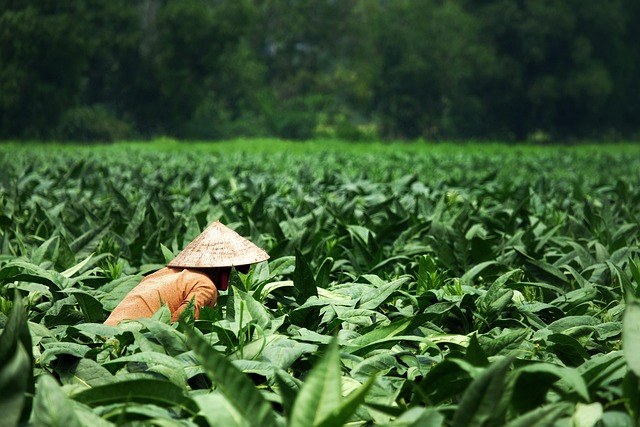Cultivate Your Future with an Agriculture Degree
The Agriculture Degree offers the knowledge and skills to succeed in the world of food production, land management, and sustainability. Explore modern farming techniques, crop science, and environmental conservation strategies that are vital for feeding the world’s growing population. Prepare for a rewarding career in agriculture with real-world applications and global impact.

What Does an Agriculture Degree Entail?
An agriculture degree program typically covers a wide range of subjects, providing students with a comprehensive understanding of modern farming practices, agricultural science, and environmental management. Core coursework often includes soil science, crop production, animal husbandry, agricultural economics, and sustainable farming techniques. Advanced courses may delve into specialized areas such as precision agriculture, biotechnology, or agribusiness management. Many programs also incorporate hands-on experience through internships, field studies, and research projects, allowing students to apply their knowledge in real-world settings.
What Career Opportunities Are Available with an Agriculture Degree?
Graduates with agriculture degrees can pursue diverse career paths across various sectors. Some popular options include:
-
Farm Manager: Oversee day-to-day operations of large-scale farms or ranches.
-
Agricultural Consultant: Provide expert advice to farmers on crop management, soil health, and pest control.
-
Soil Scientist: Study soil composition and develop strategies for improving crop yields.
-
Agricultural Engineer: Design and develop farming equipment and infrastructure.
-
Food Scientist: Research and develop new food products and processing techniques.
-
Conservation Specialist: Work on environmental protection and sustainable land use practices.
-
Agribusiness Manager: Manage the business aspects of agricultural operations.
The agricultural sector continues to evolve, creating new roles in areas like precision agriculture, vertical farming, and agricultural technology (AgTech), offering exciting opportunities for graduates to contribute to innovative solutions in food production and sustainability.
How Does an Agriculture Degree Prepare You for Future Challenges?
An agriculture degree equips students with the knowledge and skills needed to address some of the most pressing global challenges. Climate change, food security, and sustainable resource management are at the forefront of agricultural education. Students learn about advanced technologies such as GPS-guided farming, drone mapping, and AI-powered crop management systems. They also gain insights into sustainable farming practices, including organic agriculture, permaculture, and regenerative farming techniques. This comprehensive education prepares graduates to develop innovative solutions for increasing food production while minimizing environmental impact.
What Are the Latest Trends in Agricultural Education and Training Programs?
Agricultural education is constantly evolving to keep pace with industry advancements. Some of the latest trends include:
-
Precision Agriculture: Integrating data analytics, remote sensing, and automated systems for more efficient farming.
-
Vertical Farming: Exploring urban agriculture solutions for sustainable food production in cities.
-
Agroecology: Emphasizing ecological principles in agricultural systems for sustainable food production.
-
Digital Agriculture: Incorporating big data, IoT, and AI in farm management and decision-making processes.
-
Biotechnology: Studying genetic engineering and its applications in crop improvement and pest resistance.
Many universities now offer specialized courses or degree tracks in these emerging fields, providing students with cutting-edge knowledge and skills highly valued by employers in the agricultural sector.
What Is the Career Growth and Compensation Outlook for Agriculture Graduates?
The agriculture industry offers strong career growth potential and competitive compensation for qualified professionals. As the global population continues to grow and environmental concerns intensify, the demand for agricultural experts is expected to increase. According to the U.S. Bureau of Labor Statistics, employment in agriculture and food science is projected to grow 7% from 2019 to 2029, faster than the average for all occupations.
| Position | Median Annual Salary (USD) | Job Outlook (2019-2029) |
|---|---|---|
| Agricultural and Food Scientists | $65,160 | 6% growth (Faster than average) |
| Agricultural Engineers | $80,720 | 2% growth (Slower than average) |
| Soil and Plant Scientists | $63,200 | 8% growth (Much faster than average) |
| Farm and Ranch Managers | $71,160 | -6% decline |
| Agricultural and Food Science Technicians | $41,970 | 4% growth (As fast as average) |
Prices, rates, or cost estimates mentioned in this article are based on the latest available information but may change over time. Independent research is advised before making financial decisions.
While some traditional farming roles may see a decline, new opportunities are emerging in areas such as precision agriculture, sustainable farming, and AgTech. Salaries can vary widely depending on the specific role, location, and level of experience, with many positions offering above-average compensation, especially for those with advanced degrees or specialized skills.
An agriculture degree offers a pathway to a rewarding career with global impact. By combining traditional agricultural knowledge with modern technology and sustainable practices, graduates are well-positioned to address critical challenges in food production, environmental conservation, and resource management. As the industry continues to evolve, those with agricultural expertise will play a vital role in shaping the future of our food systems and ensuring a sustainable planet for generations to come.




